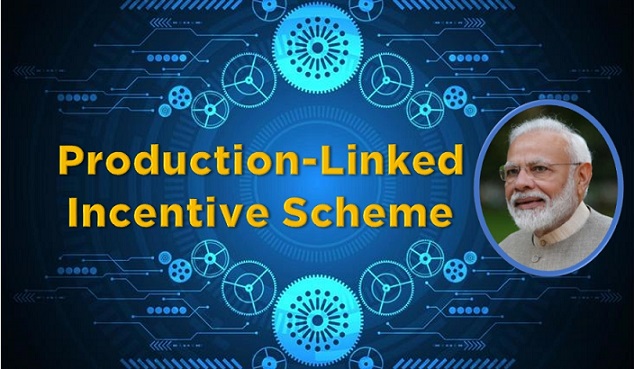By Our Correspondent
NEW DELHI/BHUBANESWAR: Minister of State in the Ministry of Commerce and Industry, Shri SomParkash, in a written reply in the Lok Sabha said that keeping in view India’s vision of becoming ‘Atmanirbhar’ and to enhance India’s Manufacturing Capabilities and Exports, an outlay of INR 1.97 lakh crore has been announced in Union Budget 2021-22 for PLI schemes for 13 key sectors for a period of 5 years starting from fiscal year (FY) 2021- 22.
These 13 sectors includes already existing 3 sectors named (i) Mobile Manufacturing and Specified Electronic Components, (ii) Critical Key Starting materials/Drug Intermediaries & Active Pharmaceutical Ingredients, and (iii) Manufacturing of Medical Devices and 10 new key sectors which have been approved by the Union Cabinet recently in November 2020. These 10 key sectors are:
(i) Automobiles and Auto Components, (ii) Pharmaceuticals Drugs, (iii) Specialty Steel, (iv) Telecom & Networking Products, (v) Electronic/Technology Products, (vi) White Goods (ACs and LEDs), (vii) Food Products, (viii) Textile Products: MMF segment and technical textiles, (ix) High efficiency solar PV modules, and (x) Advanced Chemistry Cell (ACC) Battery.
The PLI schemes will be implemented by the concerned Ministries/ Departments and will be within the overall financial limits prescribed.The PLI Schemes are expected to enable the setting up of a widespread supplier base for the global champions established under the scheme. It will help bring scale and size in key sectors and create and nurture global champions. All the units put together would help India to generate massive primary and secondary employment opportunities.
The Government of India is making continuous efforts under Investment Facilitation for implementation of Make in India action plans to identify potential investors. Support is being provided to Indian Missions abroad and State Governments for organizing events, summits, road-shows and other promotional activities to attract investment in the country under the Make in India banner. Investment Outreach activities are being carried out for enhancing International co-operation for promoting FDI and improve Ease of Doing Business in the country.
Recently, in addition to ongoing schemes, Government has taken various steps to boost investments in India. These include the National Infrastructure Pipeline, reduction in Corporate Tax, easing liquidity problems of NBFCs and Banks, trade policy measures to boost domestic manufacturing. Government of India has also promoted domestic manufacturing of goods through public procurement orders, Phased Manufacturing Programme (PMP), Schemes for Production Linked Incentives of various Ministries.
Further, with a view to support, facilitate and provide investor friendly ecosystem to investors investing in India, the Union Cabinet on 03rd June, 2020 has approved constitution of an Empowered Group of Secretaries (EGoS), and also Project Development Cells (PDCs) in all concerned Ministries/ Departments to fast-track investments in coordination between the Central Government and State Governments, and thereby grow the pipeline of investible projects in India to increase domestic investments and FDI inflow.
Steel Import Monitoring System (SIMS), an online platform for advance registration of intended imports of steel, was launched by the Government vide Notification dated 05.09.2019. The intended steel importers have to submit advance information in online system to obtain Registration Number through an online web-portal 15-60 days before the actual date of import.
The validity of Registration Number is for a period of 75 days which is obtained through online SIMS Registration web-portal. No other document apart from SIMS Registration Number and its expiry date is required to be declared mandatorily in the Bill of Entry(with respect to SIMS), to enable clearance of consignments from customs.SIMS, besides bringing in transparency, has helped the Ministry of Steel and the industry in identifying the exact steel grades being imported into the country in a timely manner.
The Government has implemented major reforms in the last one year to boost domestic manufacturing, industrial production and GDP growth. Production-Linked Incentive (PLI) Scheme in 13 key sectors, under the aegis of AatmaNirbhar Bharat, have been announced for enhancing India’s manufacturing capabilities and exports. PLI Schemes for medical devices; mobile phones; electronic components; pharmaceutical drugs; telecom and network equipment; and electronic technology products have been notified. Empowered Group of Secretaries (EGoS) and Project Development Cells (PDCs) have been set up in the Ministries/Departments to facilitate and promote investment.
A Single Window System involving clearances by Ministries /Departments and selected State Governments is on the anvil to provide end-to-end facilitation support. In the Union Budget 2021-22 with a view to promote domestic manufacturing, announcements have been made on setting up seven Mega Investment Textiles Parks(MITRA) over the next 3 years with plug-and-play facilities, rationalization of customs duty structure across sectors and for a Scrappage Policy to phase out old and unfit commercial vehicles. The National Infrastructure Pipeline is expected to significantly boost infrastructure and spur growth impulses in the economy. Reduction in the compliance burden is an ongoing process to spur investment and enhance ease of doing business in India
To boost domestic manufacturing, Department for Promotion of Industry and Internal Trade has taken a number of measures including setting up of world class infrastructure by developing nodes across various Industrial Corridors; formulation of National Master Plan on multimodal connectivity infrastructure; implementation of Industrial development schemes for North-East States, Himachal Pradesh, Uttrakhand, and Union Territory of Jammu &Kashmir to boost industrialization in the industrially backward and hilly States; for start ups, setting up a Fund of Funds and Seed Fund to build up a strong ecosystem for nurturing innovation and entrepreneurship; Development of industrial information system for improving availability of industrial land and amendment in Public Procurement Rules to enhance minimum local content.



























